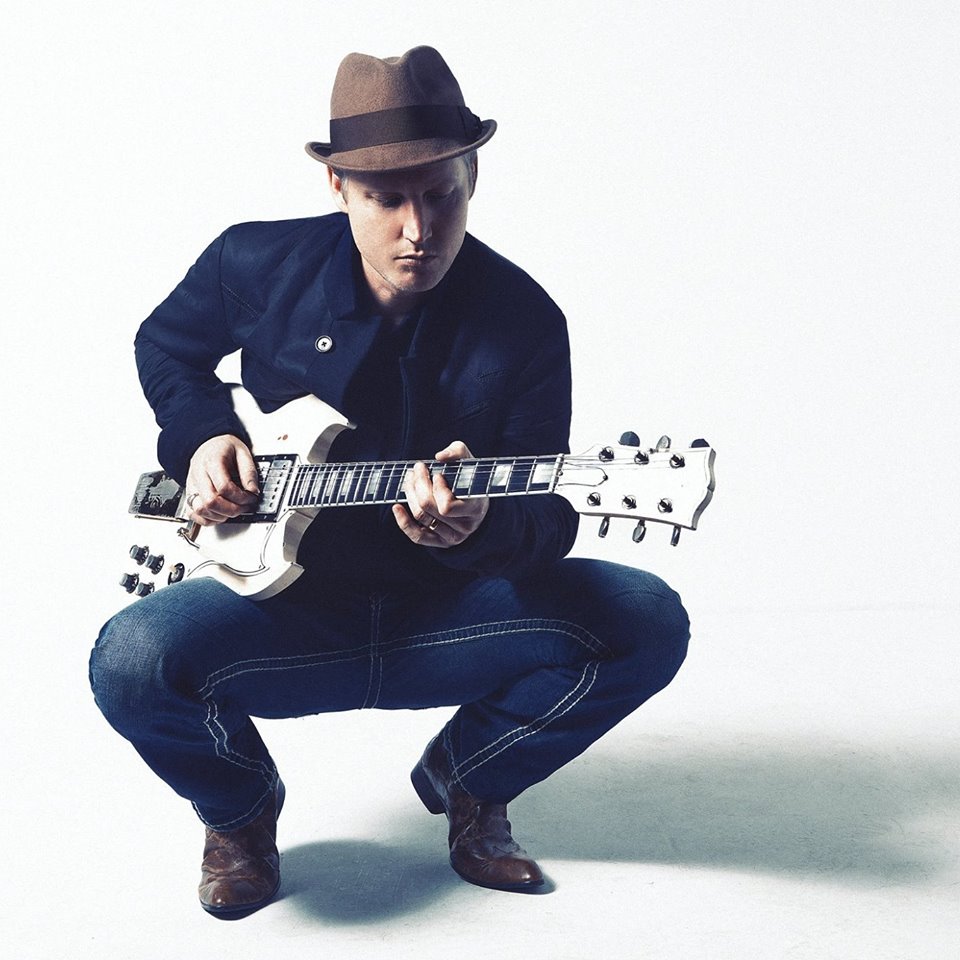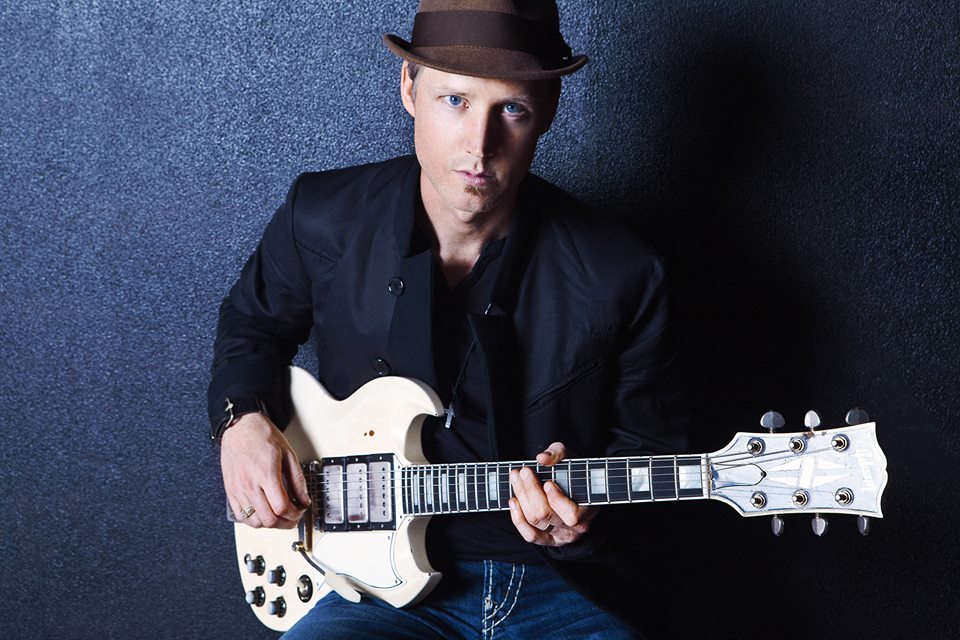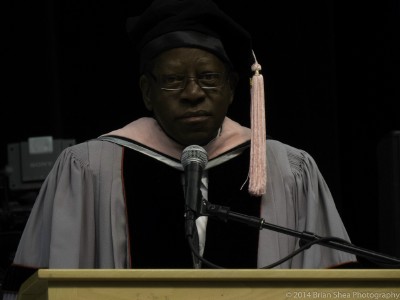Blues is one of those genres that never had any frontiers and never will. From United States to England, Italy, Colombia, Scandinavia in its entirety, just to mention few places, blues has and will always have one of those music languages that speaks to anybody the best and most understandable language in the world, that sonic Esperanto able to reach everybody, no matter whether you are rich or poor or the colour of your skin.
A country like Australia, not just blessed with beautiful landscapes and amazing blue sea but also with outstanding musicians, couldn't remain, of course, insensitive to the fascination that the blues carries with. One of the most acclaimed debut albums of 2016, Blue Skies, comes coincidentally from this wonderful part of the world, thanks to the artistry of Matty T Wall, a young and absolutely formidable guitarist and singer/songwriter.
Blue Skies is a musical journey of epic proportions that allow the listeners to travel into several decades of music. An album that is a true homage to blues and all its transformations during the years, transformations that have then gradually converged into jazz, rock and roots. Wall's vision of how the blues has moved on through time is first class and the success and attention that Blue Skies is getting not just in Australia but also worldwide is very much deserved.
Bluebird Reviews couldn't miss the opportunity to talk not just to a very inspired artist and talented guitarist but also to a very friendly and polite gentleman.
 BBR - Hi Matty, Blue Skies is a music meteorite that exploded all over the planet since its release date, thanks to your great talent as a guitarist, a singer and a songwriter. Adding to these aspects a unique, winning music formula like the one you showcase on your debut album and there you will have, using a tennis phrase, game, set and match. How long did it take for you to write and record Blue Skies?
BBR - Hi Matty, Blue Skies is a music meteorite that exploded all over the planet since its release date, thanks to your great talent as a guitarist, a singer and a songwriter. Adding to these aspects a unique, winning music formula like the one you showcase on your debut album and there you will have, using a tennis phrase, game, set and match. How long did it take for you to write and record Blue Skies?
MW - As far as the writing goes, probably a couple of years before its release date. I started to write these blues songs and I thought "I better get a band because those songs are starting to sound all right". Not long after that thought, which was about 18 months ago and with me now having a band, I thought it was about time to start recording those songs. We then started the recording, laying down the basic tracks in about 3 weeks. I have been, after the recording process, in and out of the studio for several times during the course of the next few months, because it was hard to book recording time in that studio due to the fact that it was a very busy one. All in all, it has not been a whirlwind process, because I am a perfectionist and I admit that I can be a bit pedantic, at times. I have got, towards the end of the process, also very involved in the final mixing because I was not totally satisfied about a couple of vocal parts, simply because, when it comes to singing, I don't feel I have a lot of confidence. But I thought it was all worth for me to spend extra time checking all those aspects. Maybe it took a bit longer to complete it but I am very happy about the outcome of Blue Skies.
BBR - The structure of the album is slighty unusual from a standard format, especially given the fact that this is your debut album. Was the idea of adding those two sublime instrumentals something you planned to do in the first place or are Scorcher and Smile the result of improvised jam sessions, while you were recording the album?
MW - Smile was something that had been floating around for a little while. It was one of those things that we never really played as a band. I really put it on the album as something textural, because I really love albums where the sound goes up and down and take you all over the place. Something that Pink Floyd did exceptionally well in an album like The Wall, where they take the listener to different journeys and this is something that I like to do with my music too. Scorcher, instead, was purely a fun, real blues jam that was planned, originally, as a song with proper lyrics but then I got a little bit carried away (laughs) and I thought "Well, it sounds so beautiful as it is that I better leave things in the way they are". I am not afraid of putting instrumentals on an album. I am actually more comfortable playing instrumentals, in some respects. If you think about how many avant-garde musicians have instrumentals on their records, I don't see why I couldn't do the same, because that is very close to my vision of what music should be and sound like.
BBR - You are one of the most impressive and talented guitarists we have heard in 2016. Which was the music you grew up with in your household and when was the decisive moment that changed your musical views forever, urging you to learn to play the guitar?
MW - The music I used to listen to, when I was very young, was heavily influenced by my father's records collection. He used to play and love the sound of 70's and 80's artists like Hendrix, Clapton, Led Zeppelin, just to mention few of them. As my older brother started to get into his teenage years, then I started to listen, through him, bands like AC/DC, Metallica, Panthera, a bit more heavier stuff and because of this, I found myself torn between these two different expressions of rock for a while. In the end, I realised that both those musical expressions were influenced by the blues and eventually, through that realisation, I've got pulled towards that musical direction.
BBR - Your fellow musicians Jasper Miller on drums and Stephen Walker on bass guitar are one of the most powerful and cohesive rhythm sections that any artists may ever dream to have in a band. For how long you have been knowing each other and played together?
MW - Not long at all. Eighteen months, maybe two years with Jasper and I think eighteen months with Stephen. Not a long time at all but I am referring to where we started recording the album, therefore I should add an year, by now, to the time we first started playing together. I guess that, between us, it all clicked very naturally, it's just one of those things that worked out spontaneously. Jasper has got that great sense of swing and he truly loves jazz. Stephen instead is a great fan of pop, funk and fusion, that kind of stuff. I can anticipate you that, on the material we are working on already for the next album, all those different musical influences will emerge even more from all of us. I know that it sounds crazy because we have just released Blue Skies but I look forward so much to release my next album. I have always had that forward-thinking kind of attitude and I cannot wait to get to the next step of my musical journey.
BBR - One of the most fascinating aspects of Blue Skies is related to the unexpected tangents your songs take during their executions. What is the criteria that you follow when you write music for any of your lyrics?
MW - I would say that, when it comes to write music, the genesis comes from a guitar riff and when I sense that I have found the right one that could be a good platform for a song, I record it on my phone. This is a process I would repeat several times and when I listen to the different riffs, I like to assemble them together, a bit like you would do with a mosaic and place them in a way that would allow me to take different directions through the same song. When it comes to write lyrics, I normally follow a natural flow and let the music that I have written to inspire me. It may start from a word or a sentence that I am thinking of and then I would start to build the lyrics for a song. For what concerns the direction that a song may take, when we record as a collective, I would allow musical freedom to the band to a degree, because I am very pedantic about what I want a song to sound like. Generally, I send the song to the boys explaining, as much as I can, what I would like them to play according to the way I hear the song in my head. Often, the "unexpected tangents" you were referring that Stephen and Jasper come out with are so good that I would say "Great, I like it, let's do it" but still within the parameters I have set in my head for that particular song. They add, through their craftmanships, a splendid extra flavour to the songs. It's good to have a sounding board like the one provided by the boys, because it challenges me as an artist, bouncing different ideas coming from different backgrounds and allowing me to confront the way I see or hear music in my head all the time.
 BBR - Blue Skies is the best possible proof of how much the blues, as genre, has evolved in the last half a century, thanks to the different shapes and forms you so elegantly presented in your debut album. How strong is the blues scene right now in Australia, Matty?
BBR - Blue Skies is the best possible proof of how much the blues, as genre, has evolved in the last half a century, thanks to the different shapes and forms you so elegantly presented in your debut album. How strong is the blues scene right now in Australia, Matty?
MW - We have a very strong blues scene in Australia. The way we do blues in Australia is by evolving it and by letting it to emerge and be expressed in different forms. Just to give you an idea, if you think back to the sound of artists like the John Butler Trio, which is a combustion of folkish-acoustic-dance-rootsy-bluesy genres, there is a lot of that sound going on right now in Australia. Lots of people see that as blues. That combustion of genres is gradually morphing into a more electric type of sound in later years. I have never been very strong on acoustic guitar, therefore I am very happy that blues music in my country is moving in that direction (chuckles), an aspect that you may note on my album too.
BBR - Many guitarists, for their own admissions, confessed few times that when it comes to write lyrics for their records, they find this part of the making of an album one of the hardest tasks to fulfil. How difficult has it been for you to write the lyrics for Blue Skies?
MW - You are dead right, it's not the easiest part at all. For lots of guitarists like me, to compose music, to come up with guitar solos is something that is very instinctive and natural. But when it's time to write lyrics...Oh, Man, you've got to think about that stuff! The way I cope with it, generally, is by writing something that comes to my head, then re-write it and then re-write it again until it sounds ok for me or, at least, passable, I hope! This is the way I deal with lyrics, the one that works better for me. I am not exactly as good as Bob Dylan, about lyrics but I certainly try my best.
BBR - Among all the Robert Johnson's tracks, why did you choose a relatively dark tune like Hellhound On My Trail to close your splendid album?
MW - I was in my early teens when I heard the first time Robert Johnson's music. The unique thing about him and his music is that you just don't listen to his music. You read about him too, about his dark sides and his almost devil-esque interpretation of the blues and when you are young, you get intrigued and scared by his whole persona and his music at the same time. For me, a song like Hellhound On My Trail incorporates every single aspect of Johnson and his music. A song like that, which has been written like he has indeed met the devil, was for me the best way to pay tribute to his music. Plus, I knew that nobody else had done before a cover of that song. When I read the lyrics, I thought about the feeling I wanted to express through this tune. Whilst listening to this song few times, I found the scariest notes in the whole music world written by Johnson and I thought that the best way to convey my adaptation of this song was by repeating those scary notes over and over again. That is how the whole idea of my version came about, simple as that. The haunting drums coming from Jasper helped to emphasize that scary feeling and I have got to say, I am very pleased about the way that the song came out.
BBR - Matty, are you planning to take Blue Skies on tour also outside of Australia? If so, is there any chance that your American fans will see you performing there any time soon?
 MW - It will happen but not this year. I am hoping to be able to do a tour of the US and Europe next year but it is always a bit tricky, to organise a tour of that scale. I would love so much to be able to take my music in those parts of the globe and I sincerely hope that it's going to happen. It's a long way to go for me, living in the other part of the planet, in comparison to you guys and I just want to be sure that a perfect tour planning is in place before I leave the country. Given how long the flight from Australia is going to be, I also want to ensure that I am not going to waste my plane ticket money! (chuckles).
MW - It will happen but not this year. I am hoping to be able to do a tour of the US and Europe next year but it is always a bit tricky, to organise a tour of that scale. I would love so much to be able to take my music in those parts of the globe and I sincerely hope that it's going to happen. It's a long way to go for me, living in the other part of the planet, in comparison to you guys and I just want to be sure that a perfect tour planning is in place before I leave the country. Given how long the flight from Australia is going to be, I also want to ensure that I am not going to waste my plane ticket money! (chuckles).
BBR - Music, as an art form always reflects, somehow, one or many sides of an artist's personality. Which side of Matty Wall does Blue Skies reflect, in its whole?
MW - It's hard to say which side of my personality this album reflects. The truth is that everyone has got different sides and react to things in different ways. Through my music, I guess I just wanted to show what can be done with the blues. I was very inspired by Gary Clark Jr. and his album Blak And Blu. When I first heard it, I thought that he was really doing something different with the genre and he really inspired me to express my personal vision of blues and where I see the blues going. In answer to what you asked, Blue Skies is indeed a reflection of myself and my music at 360 degrees. There are so many different moods present on the album, from happiness to sadness, from dark to light. It's a very hard question to answer, you might find even more different sides of me, different shades of my personality on the next album. I guess that the different varieties of music I play on the album is what they call freedom of expression and that, for me, is the real magic of music.
Giovanni "Gio"Pilato

